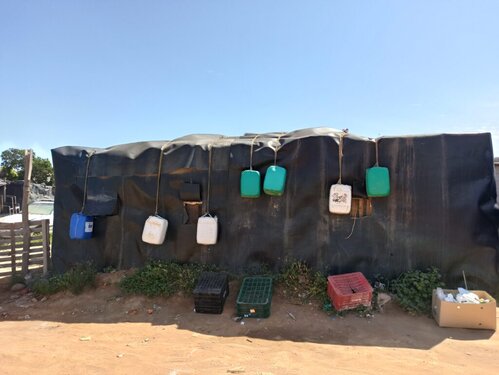Migrant seasonal workers in agriculture, with no guaranteed access to drinking water
Insecure access to water causes health problems according to research led from Lleida
The conditions of extreme material poverty to which migrants working as seasonal workers in agriculture are subjected are determinant for their decision making when it comes to obtaining and using water. In particular, they experience difficulties in obtaining healthy water for hygiene and food, a fact that causes health problems, according to research led from Lleida by the GReCS research group of the Biomedical Research Institute of Lleida (IRBLleida) and the University of Lleida (UdL).
The research, which has been published in the International Journal for Equity in Health, was carried out in collaboration with researchers from the University of the Basque Country, the Pomeu Fabra University, the Hospital del Mar Medical Research Institute (IMIM), the University of Almeria, the University of Murcia and the Pascual Parrilla Biosanitary Research Institute of Murcia.
The study interviewed 63 people, 33 women and 30 men, including health and social service professionals, NGOs, works councils and public institutions in Andalusia, Murcia and Catalonia, to learn about the situation of seasonal migrants in agriculture.
"This study shows that urgent needs related to water consumption take precedence over preventive decisions about water safety, which sometimes leads workers to risk contamination," explained the first author of the article and researcher at IRBLleida, Luis Alejandro Rodríguez Guerrero. For example, they transport and conserve water in drums intended for phytosanitary products for agriculture.
"The results of this study contribute to the knowledge of the social inequalities experienced by seasonal agricultural workers in relation to their access to safe and clean water. They sometimes have to carry water from a public water source close to the shantytowns where they live in southern Andalusia, and/or travel long distances to supermarkets to buy bottled water. Given that water insecurity is a complex problem, sustainable solutions must be sought to ensure that these workers have the necessary living conditions to meet their basic water needs," said Erica Briones Vozmediano, professor at the UdL and principal investigator of the national AGROMISALUD project, of which this study is part.
"The lack of safe access to water can lead to an increase in the prevalence of different pathologies, such as gastrointestinal and infectious disease outbreaks. Public health services have to pay special attention to the fact that this population has safe, clean, accessible and affordable drinking water and sanitation," added Briones.
The research was funded by the Instituto de Salud Carlos III and co-funded by the European Union.
Article: Rodríguez-Guerrero, L.A., Pérez-Urdiales, I., Escrig-Piñol, A. et al. Water insecurity among seasonal agriculture workers: perspectives from Spanish professionals. Int J Equity Health 23, 31 (2024). https://doi.org/10.1186/s12939-024-02112-8

Image of a shantytown in Almeria with drums of phytosanitary products from agricultural work, which people use to store water for their consumption (author: Erica Briones).






